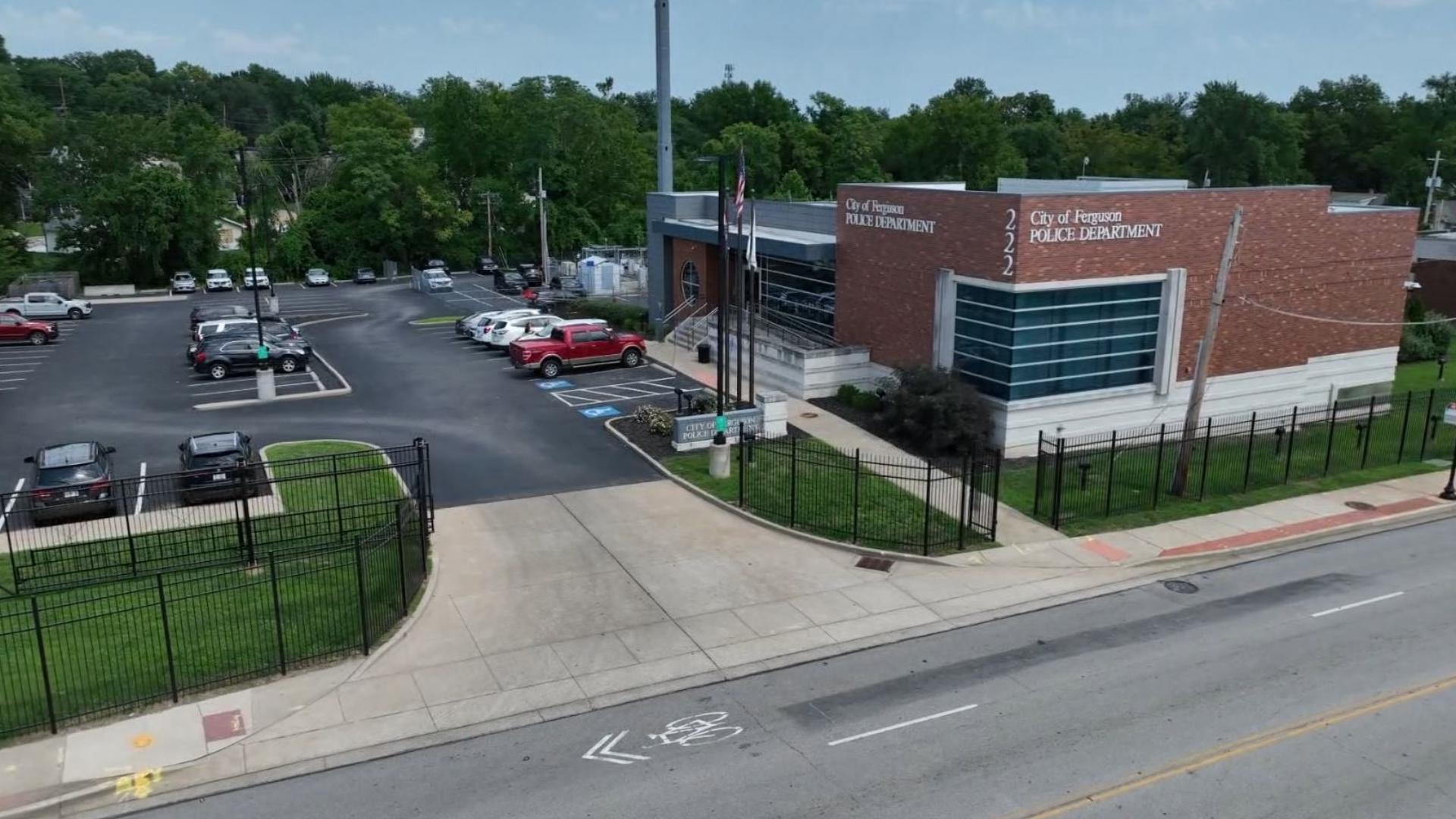FERGUSON, Mo. — Michael Brown Jr.'s death and the unrest that followed changed policing across the country forever.
The Ferguson Police Department has had eight different chiefs since 2014. Brown was fatally shot by a Ferguson police officer.
Ferguson Police Sgt. Jill Gronewald was hired shortly before Brown’s death.
“When the shooting happened, that delayed my start day. So I actually started 15 days afterwards, 15 days after the shooting,” Gronewald said.
Gronewald was immediately thrown into the fire, working 12-hours-on, 12-hours-off for months in a community filled with pain.
“We were missing our families. And then just everything that surrounded the riots in the meantime was hard, but it was also eye opening at the same time,” Gronewald said.
Many rallies for justice turned into riots.
“We understood the community's pain, certainly, but at the same time, we were having a hard time understanding why (would people) victimize the same community that's already in pain?” she questioned.
There are some images from that year she wishes she could forget.
“You're looking around at just shells of buildings, shells of property. And these people, that's all they had. And we felt helpless,” Gronewald said.
She is now under the leadership of a new chief: Troy Doyle.
Doyle was with the St. Louis County Police Department at the time of the unrest that radiated through the community. He remembers that pain vividly.
“I understood both sides of what was going on. I grew up in north (St. Louis) County. I experienced it. I got the trophy for it. I got pulled over 100 times, so I know what it feels like,” Doyle said.
Gronewald said the community's perception of the department in 2014 was poor.
“(They thought we were) the devil, the absolute devil. They didn't know my heart though. They didn't know the way that I was raised. And we were all lumped into one, into one category," she said.
Doyle said Aug 9, 2014, is the day policing changed forever.
“Many police departments went to body worn cameras and things of that nature. We all went through deescalation type of training. So we did change the dynamics in law enforcement on not only how we patrol our communities, but how we view our communities as a whole,” Doyle said.
Gronewald is only one of four officers left in the department from 2014.
“It's still it's difficult just to see some pain in people's eyes. But it's healing. You can definitely see it,” Gronewald said.
Ten years later, the Ferguson Police Department is a different place.
“Our police department is 50% African-American. In 2014, we had maybe three African-Americans on this police department. We have way more female police officers now than we ever had in the past. Our uniforms are different. Our police cars are different. We have changed the culture here in the police department,” Doyle said.
Part of that change happened because of a 130-page federally mandated consent decree. A unique piece of the decree addressed the community's distrust in the police department with mediation.
“It's confidential between them and us, and they just get to talk freely with us what their issues are, and we just speak frankly with them,” Gronewald said.
Community Mediation Services of St. Louis took on the task.
“As an African-American woman, it was hard to see, hard to hear. I have a son who was home, just graduated from Syracuse. He was home at the time he was watching this, and I was concerned about not just him, but all these young men.
"And it is difficult to see, hear and experience. And an outlet is needed. It was a painful time as a mother, as a person and as a African-American woman,” said Angela Lawson, the organization's chairman of the board.
Lawson believes these sessions have helped the relationship between the community and the police department.
“ I would say that it has helped develop the relationship between the officers and the community. And by that, I mean, not just healthy relationships, (but) we give a different perspective. So the officers are not looked at as being anti-Ferguson or anti-community. But they are to support the community. And that's where I see the benefit,” Lawson said.
It’s a community the police officers love and continue to serve no matter what.
“I still think it's important that we continue to have these conversations. It’s the only way we continue to heal. We get better,” Doyle said.
Gronewald said a lot of things have changed for the better.
“We've learned a lot over these last 10 years. And I see the difference just even where I came from. If it wasn't for everything that happened, we wouldn't be what we are,” she said.
The anniversary of Brown’s death is always a hard day for the department. This year it got even harder.
On Aug. 9, there were protests and memorials, but later that night things turned violent again.
Protesters shook the fence in front of the police department, and when a piece came off, officers had to step in.
Doyle emotionally defended the department in a news conference the next day.
“What are we protesting? What are we doing here?" Doyle asked, citing the things that have changed.
Ferguson police Officer Travis "T. J." Brown was pushed to the ground by a protester and his head hit the concrete. He was hospitalized with a severe head injury and has been in the hospital ever since.
The family and police department are accepting donations, they can be made in person a the police station or directly through a GoFundMe page.

